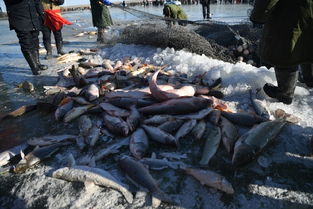Introduction: Fishing is an enjoyable and relaxing activity that allows individuals to connect with nature and unwind. Whether you are a beginner or an experienced angler, there are always new techniques and tips to enhance your fishing experience. In this article, we will explore the essential tips and techniques to help you become a skilled fisherman.
Choosing the Right Equipment: Before you start fishing, it is crucial to select the appropriate equipment. Here are some key factors to consider:
a. Rod and Reel: Choose a rod and reel that match the type of fish you want to catch. Longer rods are suitable for casting larger distances, while shorter rods are ideal for smaller fish or tight spaces.
b. Line: The type of line you use depends on the fish species and the environment. Monofilament lines are flexible and easy to handle, while braided lines offer greater strength and sensitivity.
c. Lures and Baits: Select lures or baits that are known to attract the fish species you are targeting. Research the local fish population and their preferences to make an informed decision.
Understanding the Fish Species: Familiarize yourself with the fish species you want to catch. Learn about their feeding habits, preferred habitats, and the best techniques to lure them. This knowledge will help you choose the right bait and presentation style.
Location and Timing: a. Location: Choose a fishing spot that is known for the fish species you are targeting. Research the best locations in your area, such as lakes, rivers, or coastal areas.
b. Timing: Fish are more active during certain times of the day. Early morning and evening are generally the best times for fishing, as fish are more likely to feed during these periods.

Presenting the Bait: a. natural presentation: If you are using live bait, ensure it is presented in a natural and lifelike manner. This involves mimicking the natural movements of the baitfish to attract fish.
b. Artificial lures: When using artificial lures, experiment with different retrieves and presentations. Vary the speed, depth, and direction of the lure to trigger fish strikes.
Reading the Water: Observe the water's surface and behavior to gain insights into the fish's movements. Look for signs such as ripples, boils, or disturbances that indicate fish activity.
Patience and Persistence: Fishing requires patience and persistence. Fish may not bite immediately, so it is essential to remain calm and focused. Be prepared to wait for extended periods, as some fish may take longer to bite.
Proper Knot Tying: Learn to tie strong and reliable knots to secure your line and bait. Common knots include the Palomar knot, Clinch knot, and Uni knot. Practice these knots to ensure they are tied correctly and consistently.
Ethical Fishing Practices: Respect the environment and practice ethical fishing. Release fish that are not of legal size or catch, and practice catch-and-release techniques when necessary. Be mindful of fishing regulations and guidelines in your area.
Conclusion: Fishing is a rewarding activity that can be enjoyed by people of all ages. By following these essential tips and techniques, you can improve your fishing skills and increase your chances of success. Remember to practice patience, respect the environment, and always strive to learn and grow as an angler. Happy fishing!












